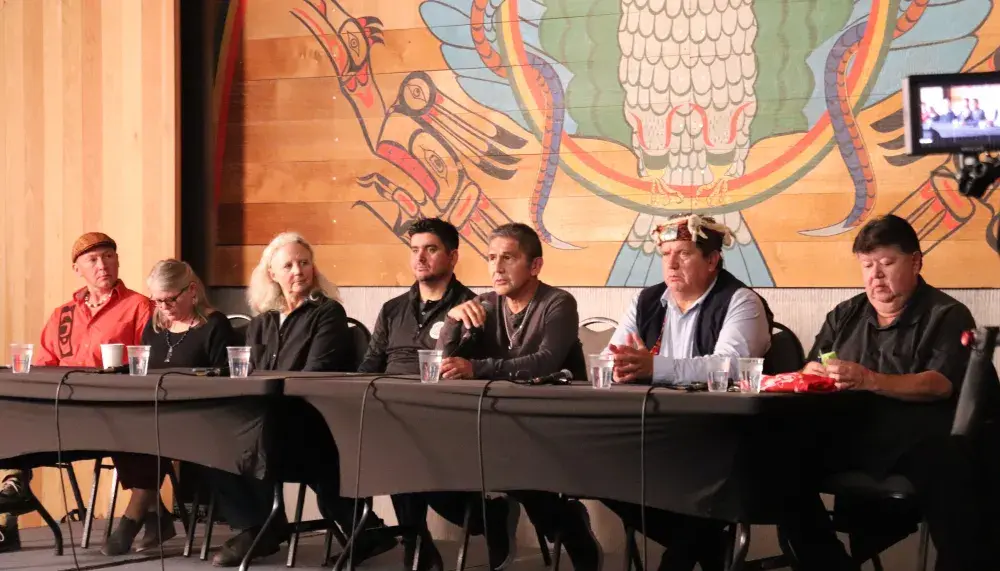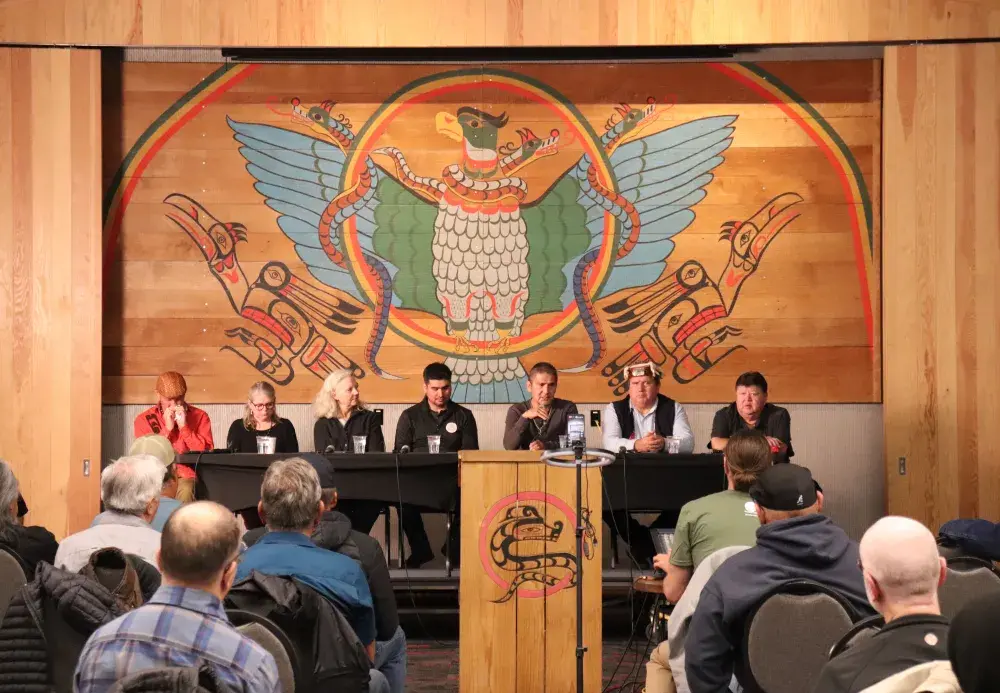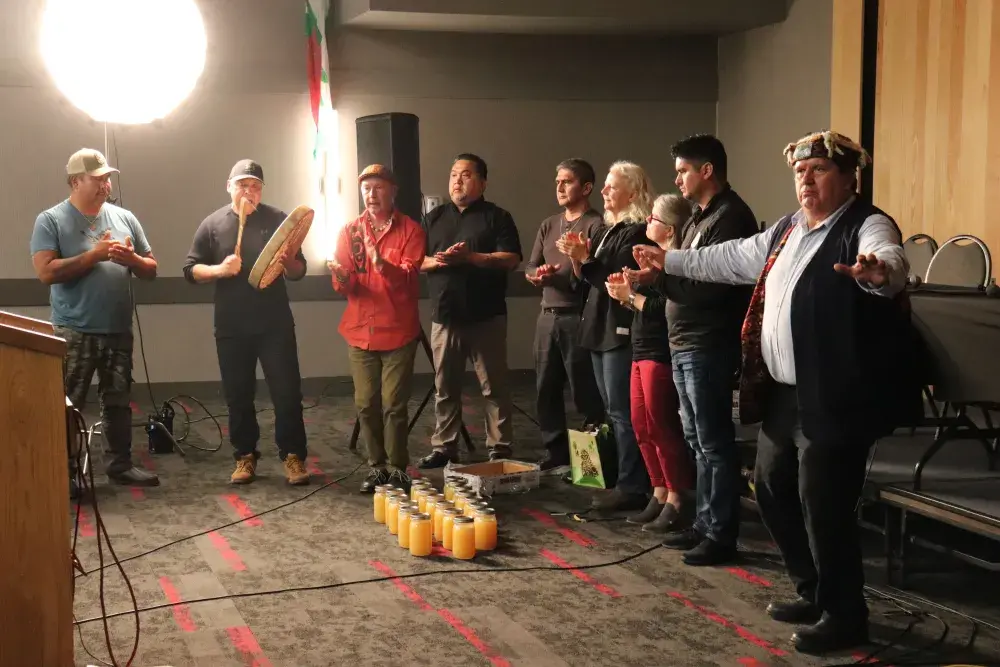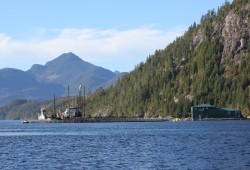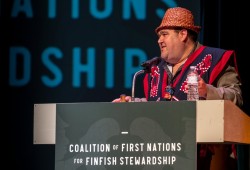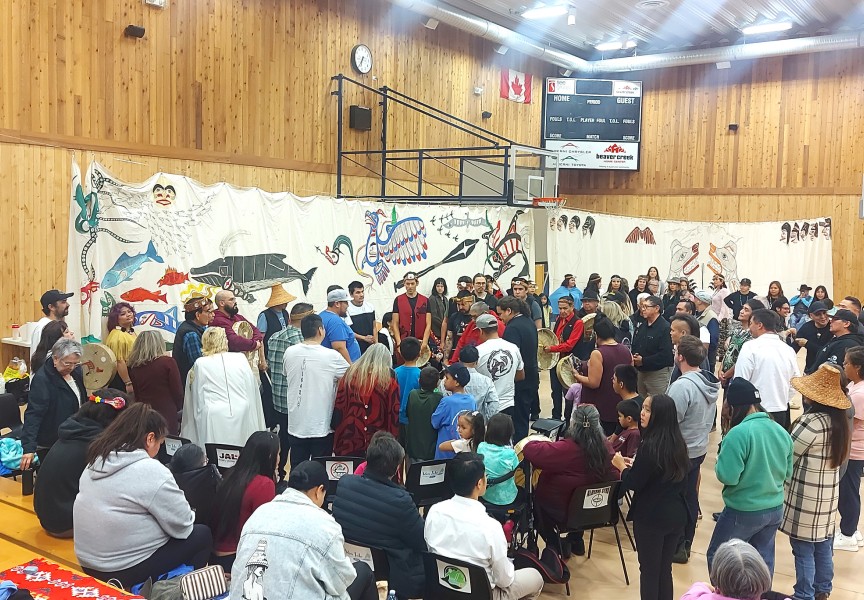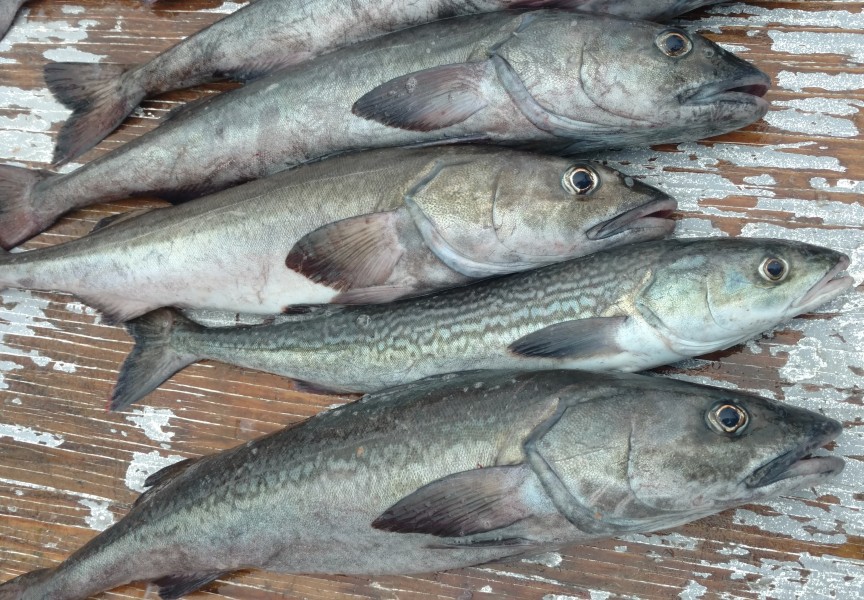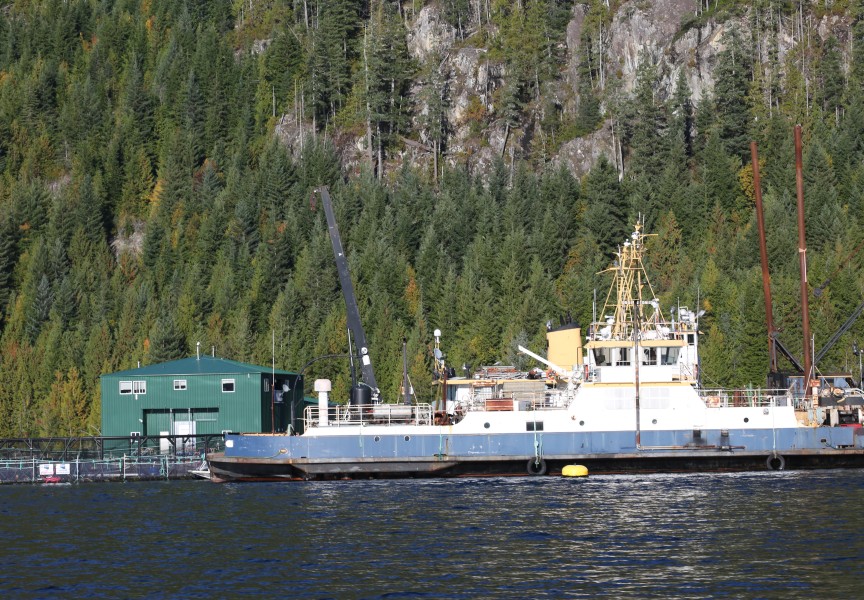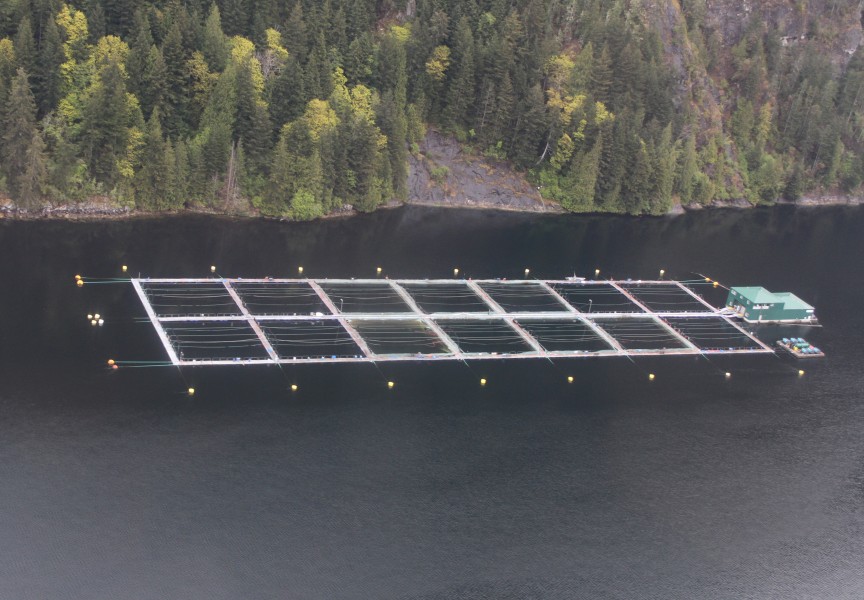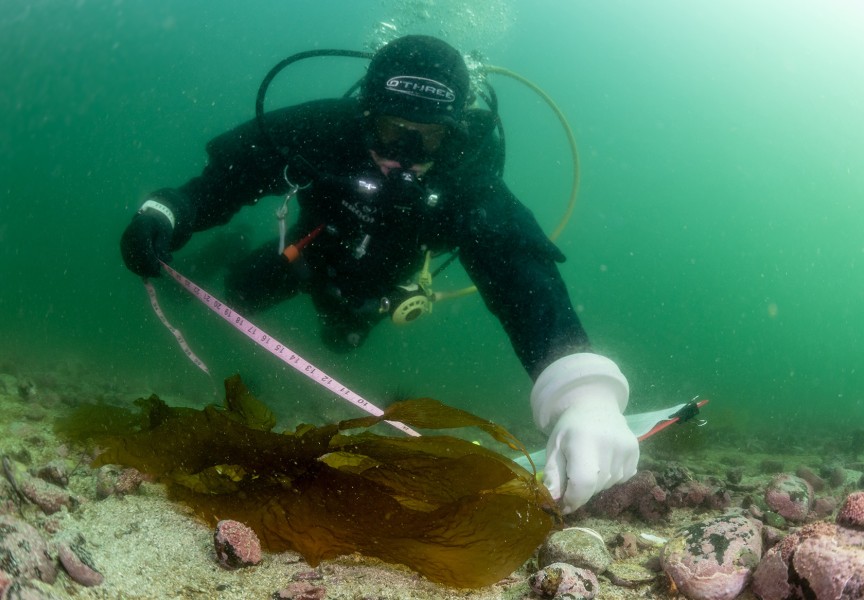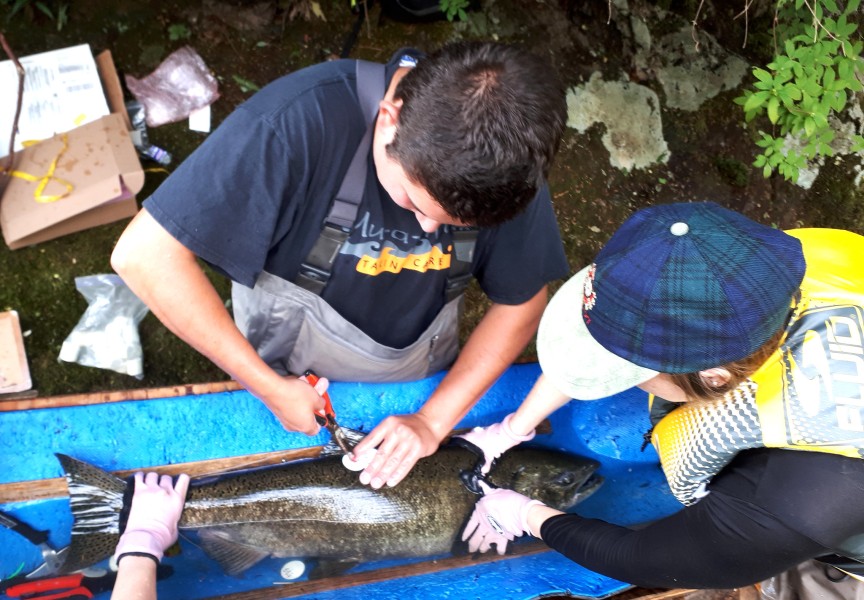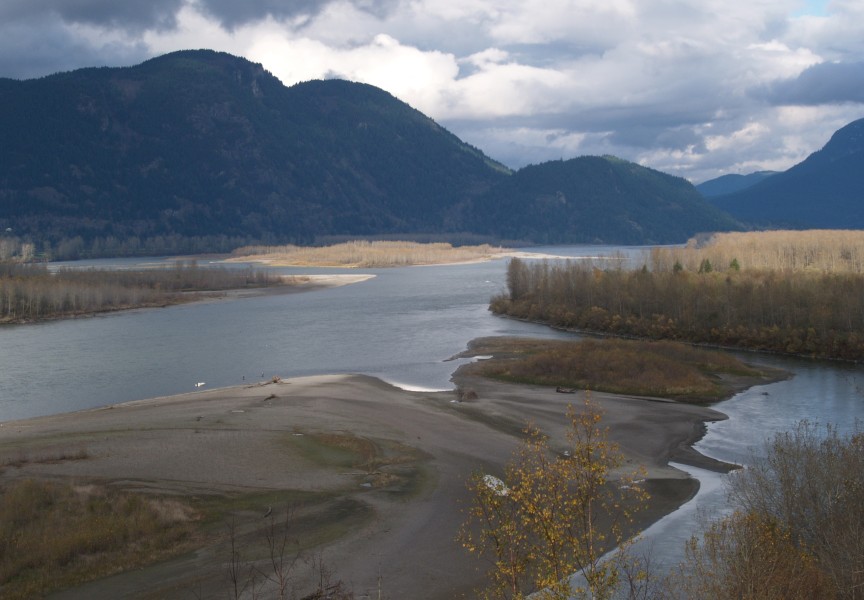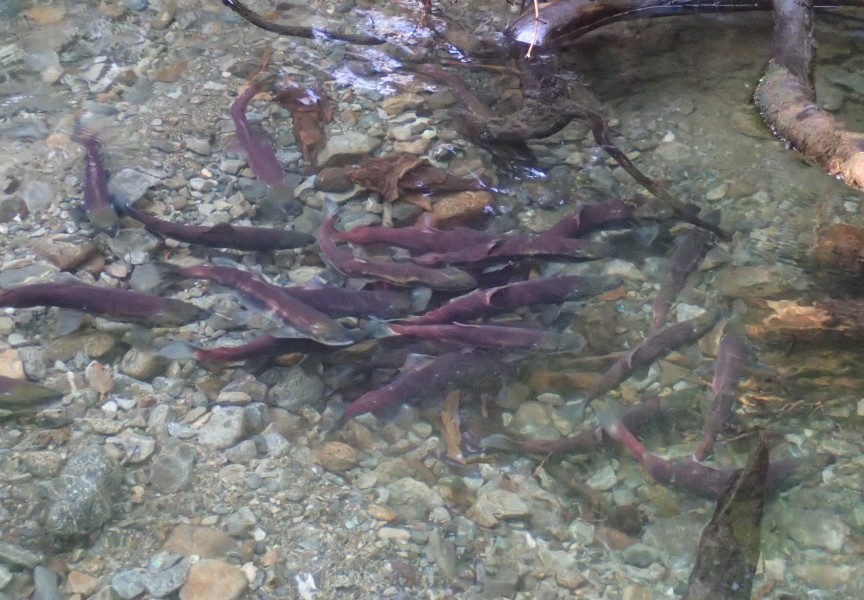In early October, Clayoquot Action organized a showing of a new documentary, Mi’ma’omakw: People of the Salmon, showcasing the phase-out process of 17 fish farms in the Broughton Archipelago, followed by a panel discussion.
The Tin Wis conference center was filled with people from coastal communities to discuss fish farms, including members of the Ahousaht, Tla-o-qui-aht and Hesquiaht First Nations.
In June of 2018 the Namgis, Kwikwasutinuxw Haxwa’mis and Mamalilikulla First Nations, also known as the Broughton Nations, signed a letter of understanding (LOU) with the province after months of discussion, to outline a government-to-government process which would lead to removing all fish farms from the Broughton Archipelago by late 2023.
“Our mantra was simple: What's the best thing we could do for wild salmon?” said Don Svanvik, hereditary chief of ‘Nagmis First Nation, in an interview with Ha-Shilth-Sa.
“There was an agreement worked out that said, ‘Okay, there's these farms in different areas [on] migration routes, we're going to move some of them now, we're going to do some science, and by the end of this specified amount of time, which was late last year, if industry could demonstrate to us that there was no impact [on] wild salmon and the environment… farms could stay,” continued Svanvik. “That didn't happen, so the nation's did not agree to renew the leases.”
“This is a really significant agreement,” he emphasized. “This is where we had say.”
To date, one fish farm throughout Broughton archipelago remains, with plans for its removal by December, shared Svanvik.
Concerns of sea-lice, viruses, and disease from open-net fish farms impacting migrating wild salmon and the surrounding environment have been the leading cause for conservationists and activists’ push for the removal of open-net sites.
Terry Dorward (Siet-cha) of Tla-o-qui-aht is the conservation director of the West Coast IPCA support program at the Naa’waya’sum gardens. He would like to see more conversations regarding solutions to fish farms for Nuu-chah-nulth.
“Those in support of the current status quo with open-net fish farms, and those who do not agree with its negative impacts on our coastal communities, need to take the necessary steps, I believe, to come together and openly discuss the issues around this industry,” shared Dorward.
“We as Nuu-chah-nulth need to seek our own resolution, I believe, when it comes to the fish farm issue that can satisfy both opposing views with a decision that we all could live with,” he continued. “If that means jobs in closed-containment fish farms, or transitioning into healthier industries, such as kelp or oyster farms, we need to find that.”
The process began in 2019 when the minister of Fisheries, Oceans and the Canadian Coast Guard was tasked with constructing a plan which would transition the aquaculture industry from open-net fish farming by 2025. The process would include consultation with First Nations, the aquaculture sector, surrounding communities, conservation organizations, and academia.
Though a transition plan was expected to be finalized in June of 2023, it has yet to be completed.
According to the Coalition of First Nations for Finfish Stewardship (CFNFFS), 17 First Nations throughout British Columbia have formal agreements in the aquaculture industry, with 276 employees identifying as First Nation. Additionally, the aquaculture industry holds 21 contracts with Indigenous-owned businesses and suppliers, spending a total of $24 million on Aboriginal-owned operations, and contributing $12.1 million in financial support through protocol and benefit agreements.
“In remote communities, full-time, meaningful employment is almost like having three jobs in the city just for the impact that it has,” said Dallas Smith of Tlowitsis Nation, who is a spokesperson for CFNFFS. “Not only does it bring economic opportunity to families and to the workers, it also takes the stress off social service systems that are already overburdened in some of our remote communities.”
“There's a whole social side of this equation that needs to be examined as we make decisions about the future of aquaculture,” he added.
The CFNFFS has called upon the federal government to conduct a “full social and economic impact study” of the coastal communities that will be affected by the pending transition plan.
Throughout Clayoquot Sound, fish farms continue to operate under the protocol agreements.
Ahousaht and Cermaq have a protocol agreement, which was renewed in May 2022. Similar to previous agreements, it outlines operational plans, environmental stewardship, as well as employment, business opportunities and monitoring.
Tla-o-qui-aht and Creative Salmon’s protocol agreement, signed in 2014, outlines that the company must only raise chinook salmon. It prohibits the use of antifouling agents on the nets as well as underwater night lighting, and the fish must make up less than one per cent of the space in each pen.
In an email to Ha-Shilth-Sa, Tim Ruddle, managing director of Creative Salmon, wrote that the organization employs 55 people from Tofino, Ucluelet, and other surrounding areas, with thirty per cent of Tofino-based employees identifying as First Nation.
From 2014 to 2022, Creative Salmon has contributed $600,000 in community support for salmon habitat and restoration, for Tla-o-qui-aht health and wellness, emergency response, clubs, sports groups, elders’ projects, arts and culture, among others, wrote Ruddle.
The inclusion of First Nations throughout the aquaculture industry has brought “traditional ecological knowledge” that has offset the problems seen in the industry’s early years, said Smith.
“I think nations are finding a way of working with all the operators in their territory, and fish farms are one of many, that can bring some opportunity to achieve some of their own community goals,” said Smith. “Nations who don't want fish farms in their territory shouldn't, but nations who have decided to make that step and be part of it need to continue to have the opportunity to do what's best for their community.”
“We need to have employment for our people; however, the open-net fish farm industry is destroying, I believe, our Nuu-chah-nulth way of life to have an abundance of wild salmon and healthy ecosystems,” said Dorward.

